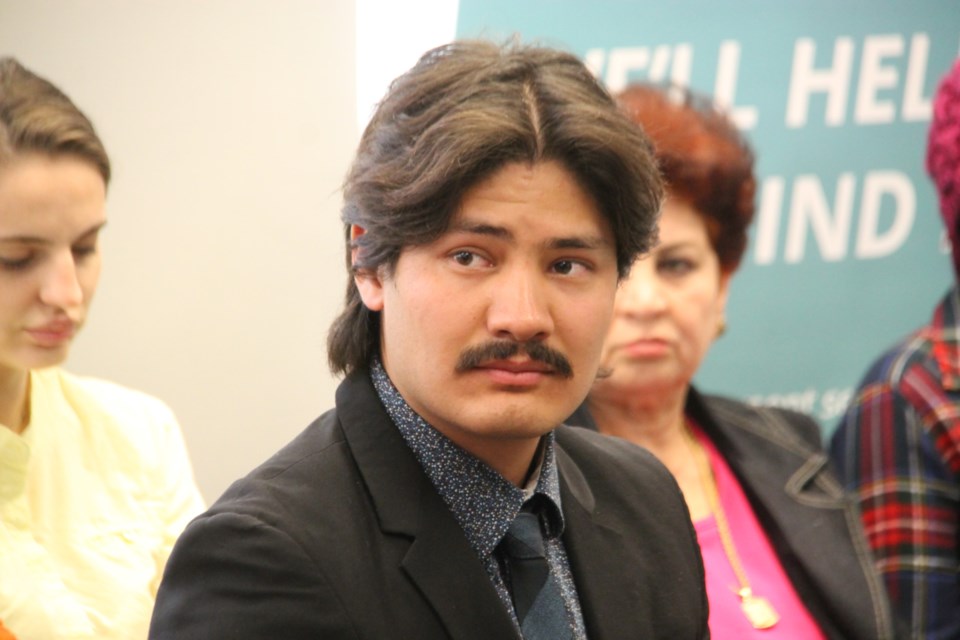Transitioning from one country to another is never easy and the learning curve can be very steep.
Among many challenges is the hesitancy - among people who come from countries with harsh, dictatorial regimes - to trust police officers.
That fear is gone for Ahmad Zia Ataee of Afghanistan who has lived in Sault Ste. Marie for the past 15 months.
“The government in Afghanistan was corrupt. If you had connections with the police you had the upper hand. But if you don't have connections you have to pay them for help. There isn’t too much transparency with them,” Ataee told SooToday.
Ataee attended a meet and greet event with Sault Ste. Marie Police Service and Sault OPP officers - who were accompanied by a Sault Area Hospital crisis worker - at Sault Community Career Centre on Queen St. E. on Monday.
The objective of the meeting was to assure newcomers that police in Canada differ from those with tyrannical governments across the globe.
Approximately 30 newcomers to the Sault - many from Taliban-ruled Afghanistan, some from war-torn Ukraine - packed the room at Monday’s gathering.
“In Afghanistan you have to keep your ideas to yourself. Your ideas can put you in danger, especially now. The Taliban are killing people who are criticizing the government, either verbally or written,” Ataee said.
“I don’t know what kind of mindset they have. It’s scary,” said Ataee, stating he feared religious persecution from the Taliban.
“Fortunately here in Canada you can trust the police. You know that no matter who you are, what your position is, the important thing is everyone is equal. You’re free to wear anything you want. You’re free to express your ideas and you don’t have to be afraid of anything,” said Ataee, 25, who lives in the Sault with his parents and siblings and works as an educational assistant with the Algoma District School Board.
“I’ve always wanted to be able to have this opportunity to sit and meet and talk about just what it is the police in Canada do,” said Hugh Stevenson, Sault Police Service chief speaking to Monday’s gathering.
“The people are the police and the police are the people. In Canada we cannot police without you,” Stevenson said.
The chief spoke of the availability of 9-1-1 in emergencies and the ability of dispatchers to link newcomers up with service in their native language.
“We need your input. We need you to tell us when you’re hurt, when you need us. We need you to look at situations in your community that could be dangerous. We need you to tell us that because we’re here to help you. I know in some jurisdictions internationally the police are more dictator-ish, they’re working for the ruling party, they are into graft and you don’t get police services unless you give them something. We’re not looking for anything. We want to make sure first and foremost that you’re safe.”
Sgt. Rob Chabot and Cst. Beau Neveau told the group of help that the Mobile Crisis Rapid Response Team - the MCRRT - can provide for newcomers suffering from anxiety, depression and suicidal thoughts.
The MCRRT is a unit that pairs police officers trained to respond to mental health crisis calls with a Sault Area Hospital crisis services clinician.
“We thought it would be great for us to address these new Canadians and let them know that we’re here for them. We can certainly direct them to our partner agencies like Social Services, the hospital,” Chabot told SooToday.
He added that police - on one occasion - stuffed some cruisers with food for a large family of newcomers and directed them to food banks for times of future need, if necessary.
